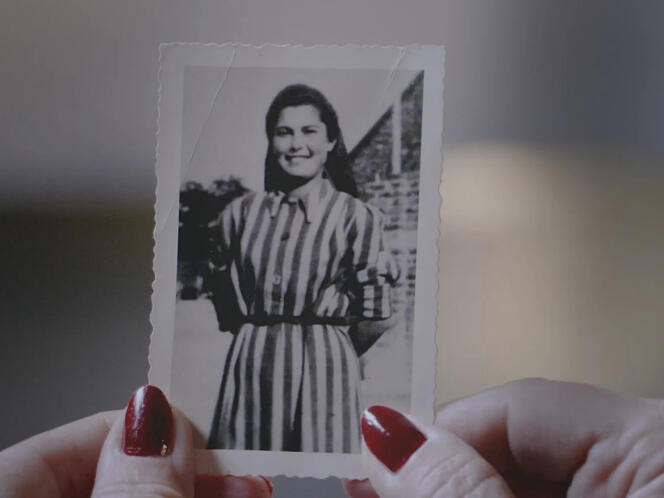THE “WORLD’S” OPINION – MUST SEE
It is striking to note the extent to which tragic situations are, more than others, a source of strange events, incredible miracles, and unthinkable probabilities. The literary and cinematographic corpus around the Shoah is, in this respect, a prolific field, and yet we believe we can say that the story told in Love It Was Not, a documentary by Israeli director Maya Sarfati, is one of the most astonishing and improbable accounts ever heard on the subject. It evokes the fate of Helena Citron (1922-2007), a young Jewish girl from the village of Humenné, in Slovakia, deported to Auschwitz in March 1942.
This very pretty young girl, who has already had the “luck” of escaping selection for the gas chamber, has a voice and a taste for singing noticed by the Kapo of her building, who sends to perform at the camp commander’s birthday. There she meets the gaze of a young SS officer, the Austrian Franz Wunsch (1922-2009), who cannot resist the charm of the young woman even though his vocation consists of assassinating her in the more or less long term.
However, it is the opposite task that Wunsch will tackle, who, if we are to believe certain testimonies produced by this film, falls madly in love with the young woman. Helena, for her part, seems to respond to this love, and one would be hard-pressed, to be honest, to give either the first or the last word of this feeling so profoundly unnatural in this place, whether it is guided by a pure instinct for survival or a feeling of reciprocity, or even both at the same time. Wunsch, who otherwise behaves like an ordinary SS man (i.e. a psychopath) in the context of his concentration camp activities, sanctuaries, so to speak, with Helena his part of humanity.
Dissociative madness of men
He had her appointed to the most enviable commando, that of Kanada (sorting of the effects of deportees), which provided its members with discreetly stolen food and clothing. He watches over her when she is ill, allows the companions she recommends to him to benefit from his clemency, thus saves his sister on the threshold of the gas chamber, makes photomontages of his beloved in banal tourist situations, foments a plan of escape for the sisters.
In return, Helena, although she does not forget to let those around her benefit from the “protection” she receives, is not viewed very favorably by her fellow inmates. Here then, in a word, a man in love who compromises himself to the point of going to a disciplinary council, and who will have to, during the evacuation of the camp, separate from his beloved to join the front, not without having provided him with warm shoes for the famous “death march”.
You have 39.37% of this article left to read. The rest is reserved for subscribers.
